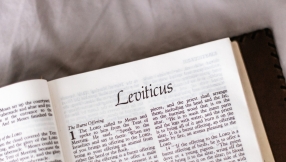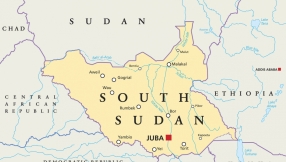The Government should pay close attention to the impact of welfare cuts on the most vulnerable, the Church of England's parliamentary body said today.
General Synod voted in favour of a motion acknowledging the need for welfare reform in a time of austerity but decrying the "misleading characterisation of all welfare recipients as 'scroungers'".
Speaking in the debate, the Archbishop of York, Dr John Sentamu dismissed the concept of the "undeserving poor", saying that so-called scroungers were a "convenient scapegoat when it seems expedient to make sure someone pays the price of the hardship we fear".
"The Church has always been in the forefront of the challenge to speak and act prophetically, to give a voice to the voiceless and hope and help to those in need," he said.
"And we must continue not only to show mercy and kindness, but to shine the light of truth onto the debate about Welfare, and resist the rhetoric that accuses many of choosing a life of idle dependence to the detriment of society."
The Archbishop, who has just been appointed Chair of the new Living Wage Commission, reminded Synod that it was not the people in poverty and low earners who caused the economic downturn but rather the "gambling casino culture of a group of wealthy bankers".
He called for a living wage, saying that without this, there some people would continue to be unable to provide for their families.
"Paying a living wage is not about generosity or charity. It is about fairness and justice," he said.
The Archbishop concluded his speech by saying that he wanted to see church and state work together in rebuilding communities.
"For me, the road to recovery is a path not of riches, but of service, mutual resourcing and togetherness. Something for something. It is rooted in the rediscovery of a vision to rebuild community in recognition of our duties to one another. Rediscovering the wellsprings of solidarity," he said.
"Together, the church and state must work to regain the big vision for society under God, which Jesus Christ has called us to show in our care for our brothers and sisters. We must live the Beatitudes and cause them to pervade all our communities."
The motion was put forward by Philip Fletcher, Chair of the Mission and Public Affairs Council, who similarly argued that if employers took the living wage seriously, the welfare system could be reduced "so that it was not a hidden subsidy for underpaying employers".
He also criticised the stigmatisation of the poor. "Taking personal responsibility and working hard are virtues. But that is entirely consistent with receiving welfare payments and receiving welfare payments does not mean one is not hardworking," he said.
The motion was passed with an amendment calling on politicians to pay close attention to the impact of welfare cuts on the most vulnerable and to consider whether the ring-fenced provision of universal benefits "may be becoming the enemy of targeted benefits".
The amendment was put forward by Gavin Oldham, Synod member from the Diocese of Oxford, who said the problem with universal benefits was that they were financing services for "people perfectly able to pay for them themselves".
Mr Oldham gave the example of his buss pass that he uses every day. "I'd love to pay for it," he said.
The Bishop of Ripon and Leeds, the Right Reverend John Packer said there was a lack of justice in the current response to austerity.
While he commended the Government for protecting overseas aid, he questioned why this commitment to people in poverty "hasn't been replicated in our own society".
The bishop said the vast majority of people on benefits needed them and that those abusing welfare made up only a tiny proportion of recipients.
The bishop echoed Mr Oldham's sentiments, suggesting austerity be shouldered by those who could afford it.
"At a time of austerity, the Government needs to ensure the burden falls upon those who cannot afford it," he said.
"I count myself among those who have not suffered in any way by the austerity package and yet could afford to do so."









